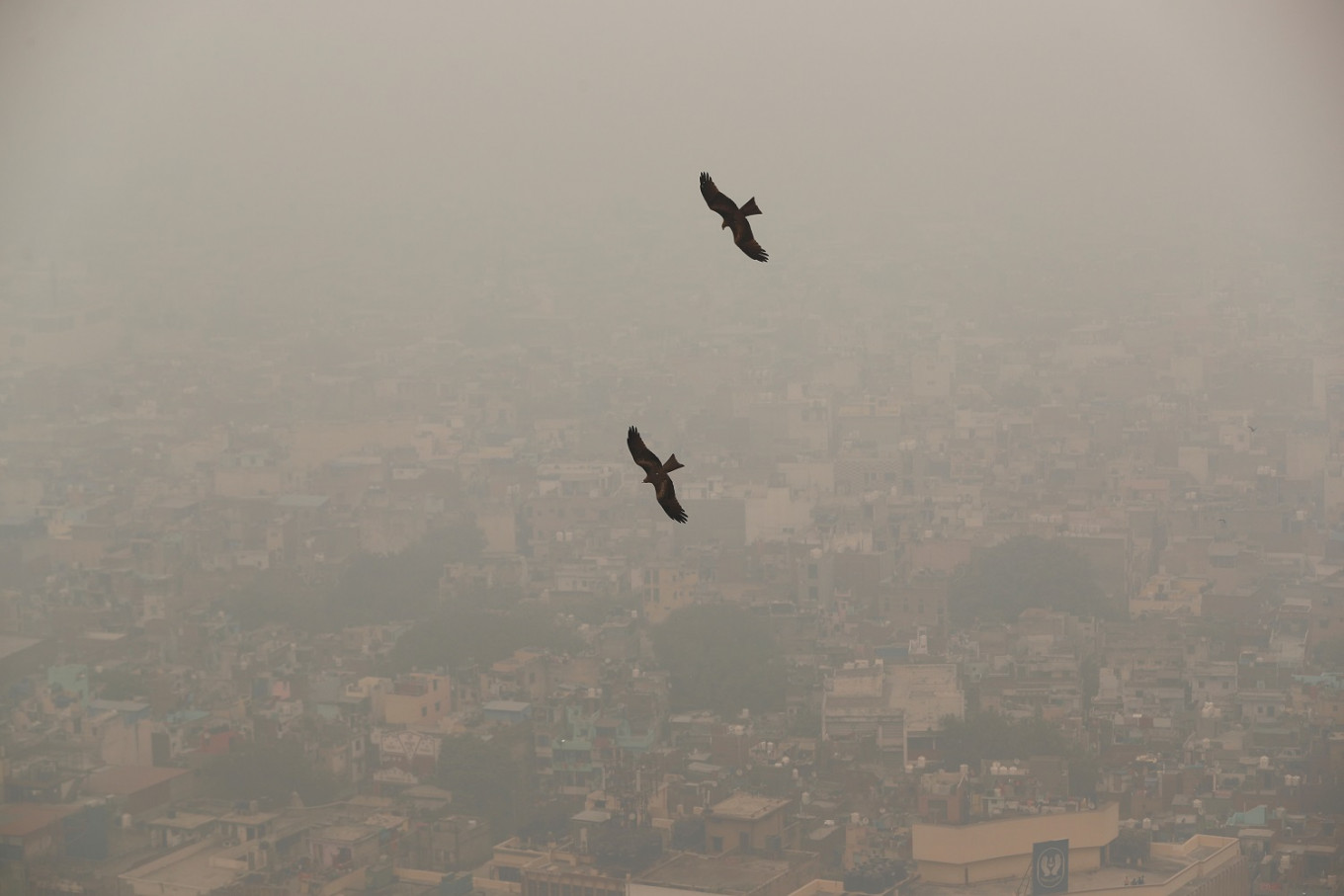Popular Reads
Top Results
Can't find what you're looking for?
View all search resultsPopular Reads
Top Results
Can't find what you're looking for?
View all search resultsIndia's capital suffers most toxic air in a year, heightening coronavirus worries
Change text size
Gift Premium Articles
to Anyone
N
ew Delhi, the capital city with the worst air quality worldwide, suffered its most toxic day in a year on Thursday, recording the concentration of poisonous PM2.5 particles at 14 times over the World Health Organization safe limit.
A raging coronavirus epidemic, with more than 400,000 confirmed cases in the city of 20 million, has heightened alarm over the health hazard posed by the choking smog, with doctors warning of a sharp increase in respiratory illnesses.
"We are seeing all round the sky is covered with smoke, and because of this the situation from coronavirus is worsening," Arvind Kejriwal, Delhi's chief minister, said in a recorded video on Twitter.
Delhi's air pollution typically worsens in October and November due to farmers burning off stubble and coal-fired power plants in surrounding states, traffic fumes and windless days.
Kejriwal has banned use and sale of firecrackers in Delhi ahead of Diwali, the Hindu festival of light, and ramped up critical health infrastructure in state-run hospitals to control a surge in coronavirus cases due to pollution and the festive season, he said.
Read also: Hindu festival worsens Indian capital's air pollution woes
On Thursday, the federal air quality and weather monitoring agency recorded 4,135 incidents of farm fires - the highest of the season.
"Woke up with a feeling that poisonous garbage is stuck in my windpipe," said Rahul Ojha, a resident who tagged government authorities in a tweet, blaming them for inaction.
The average level of the tiny PM2.5 particles, which could potentially cause cardiovascular and respiratory diseases including lung cancer, was 370 per cubic meter of air against the WHO's prescribed safe limit of 25 per cubic meter.
The overall air quality index (AQI), which includes other pollutants besides PM2.5 particles, crossed 460 on a scale of 500, the worst since Nov. 14, 2019.











